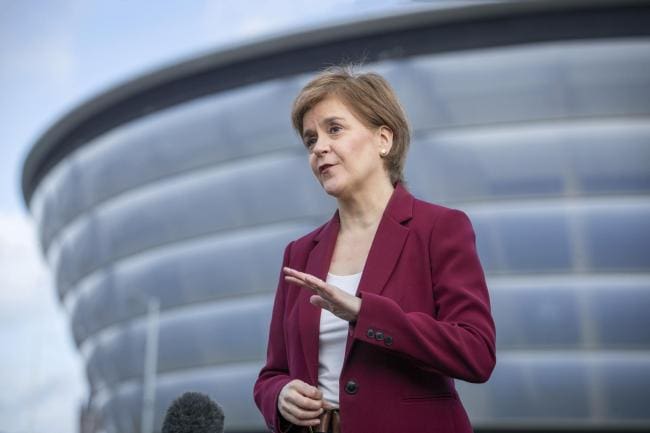SCOTLAND has a “radical opportunity” to introduce a universal basic income (UBI), with the next Scottish Parliament expected to have a majority of MSPs who back the idea, campaigners have said.
By Judith Duffy
During the first leaders’ debate of the election, most parties – the Greens, Labour and the LibDems – said they were in favour of introducing a system where the Government guarantees a regular minimum income to every citizen.
The Tories were the only party to rule it out, with leader Douglas Ross saying he was “not convinced by the argument”.
Nicola Sturgeon revealed the SNP’s manifesto would set out steps towards introducing a universal basic income, even without the full powers over tax and social security required to implement it fully.
She said: “I am very supportive of it and the pandemic has made me more supportive of it.”
One of the countries which have conducted a basic income experiment is Finland, which ran a trial in 2017-2018 during which 2000 unemployed people received a monthly payment of €560.
In Ireland, the Green Party has secured a commitment to initiate a trial of UBI in the lifetime of the current coalition government.
Last week The Finnish Institute in the UK and Ireland held an event on UBI after the pandemic aimed at sharing lessons from the trial in Finland.
Speaking at the online discussion, Jamie Cooke, head of RSA Scotland, pointed out that only a few years ago it was not an area of widespread discussion in Scotland.
He added: “Currently we are heading towards elections here in Scotland in May of this year and at the leaders’ debate … four out of the five main political party leaders expressed their support for basic income as a concept and something to explore in Scotland.
“So this is a radical shift and a radical opportunity for us to really take this forward, particularly as we look to a new parliament where I would hope and expect the majority of our parliamentarians will be pro-basic income in some form.”
Questioned on how such a system could be funded, Cooke suggested exploring ways to gather levies from data could one option.
“Data is one of the biggest – if not the biggest – resources in the world just now, most of which flows directly into private pockets,” he said.
“It is not benefitting individuals financially, it is not benefitting society. I’m not saying it is an easy thing to do, [but] to find ways to tap into that as a resource would be a huge opportunity to start to pay for these kind of investments, which would have multiple benefits further down the line.”
Minna Ylikanno, a senior specialist at the Ministry of Economic Affairs and Employment in Finland, and adjunct professor in the Department of Social Policy at the University of Turku, also suggested ways could be found to fund basic income, such as targeting huge corporations that “somehow slip away from every tax system”.
She added: “We had dreams that were hugely costly – free schooling, free school meals for children and we managed to do that and we still exist as an independent country.”
Tuomas Muraja, a Finnish freelance journalist and author who was one of the 2000 people selected to take part in Finland’s two-year basic income trial, said the arrangement allows more freedom, increasing both creativity and productivity.
“Basic income would put an end to the humiliation of the poor – students, unemployed people, stay-at-home mothers and fathers and retired people would gain more control over their own lives,” he said.
____
View original article here: https://www.thenational.scot/news/19224718.holyrood-radical-opportunity-introduce-basic-income-system/




















